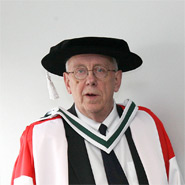 One smaller thing: I re-read MacIntyre's very sharp essay from a few years ago, "Transformations of Enlightenment: Plato, Rosen and the Postmodern" (in Logos and Eros, ed. Nalin Ranasinghe (St. Augustine's P, 2006), which appreciates and critiques the thought of the Straussian philosopher Stanley Rosen. I don't know of any other place where MacIntyre actually confronts Straussianism, other than a review he wrote a few years back of a book by Thomas Pangle (but M. didn't seem to understand what was going on in that book). His critique of Rosen is thoughtful and illuminating, and basically turns on the claim that Rosen's Platonism and modified liberalism rely upon a version of Nature he is unwilling to credit as existent.
One smaller thing: I re-read MacIntyre's very sharp essay from a few years ago, "Transformations of Enlightenment: Plato, Rosen and the Postmodern" (in Logos and Eros, ed. Nalin Ranasinghe (St. Augustine's P, 2006), which appreciates and critiques the thought of the Straussian philosopher Stanley Rosen. I don't know of any other place where MacIntyre actually confronts Straussianism, other than a review he wrote a few years back of a book by Thomas Pangle (but M. didn't seem to understand what was going on in that book). His critique of Rosen is thoughtful and illuminating, and basically turns on the claim that Rosen's Platonism and modified liberalism rely upon a version of Nature he is unwilling to credit as existent.Now, as part of a class prep, I'm reading through Robert Fagles' translation of the Aeneid for the first time (I've usually read Fitzgerald before now), and I'm going through Lee Fratantuono's commentary, Madness Unchained: A Reading of Virgil's Aeneid (Lexington, 2007), at the same time. Fagles is pleasurable, though I find myself second-guessing his florid renderings from time to time. Fratantuono seems solid and very interesting so far, displaying some of the reading habits of his erstwhile mentor, the late Seth Benardete, but without descending into the maddening fog of Benardete's obscurantist prose.

